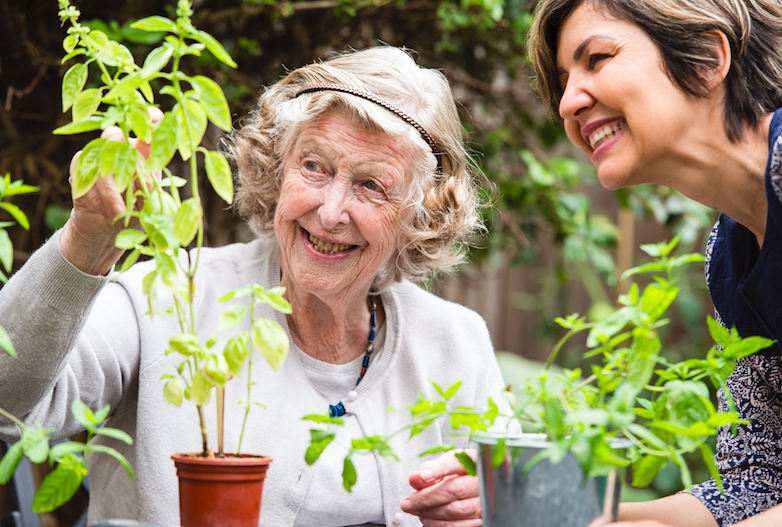Alzheimer’s disease is the most common cause of dementia, which is characterised by difficulties with memory, thinking, problem solving, communication and behaviour.
What is Alzheimer’s disease?
September is World Alzheimer’s Awareness Month, helping to raise awareness and challenge the stigma of this devastating disease. We’re all forgetful every now and then, so what is Alzheimer’s disease and who can help?
Alzheimer’s is the most common cause of dementia, which describes a group of symptoms that include difficulties with memory, thinking, problem solving, communication and behaviour.
These changes are often insignificant in the beginning but can gradually increase to affect all aspects of daily life.
At first, someone with Alzheimer’s disease may notice memory lapses, difficulty remembering words and mild confusion.
Eventually the disease progresses to cause disorientation, inability to care for themselves or even remembering loved ones.
What are the signs and symptoms of Alzheimer’s disease?
The Alzheimer’s Association have identified ten key features of the disease. But it is important to understand that each individual with dementia is unique and will experience the condition in different ways.
- Memory loss that can disrupt daily life: forgetting appointments, not paying bills or leaving the door unlocked when they go out
- Planning ahead and solving problems can become increasingly difficult
- Difficulty to complete familiar tasks that they used to manage with ease. This can include balancing the family accounts, performing household chores or changing a lightbulb. As the disease progresses they may start to struggle with dressing themselves, washing and toileting
- Individuals with dementia may forget the time, the day and the date or may be lost and confused about their location, even in familiar places
- There may have trouble understanding visual images like maps or charts and also have decreased spatial awareness, which can lead to problems when parking the car
- Individuals may struggle to find the right word or name when they are speaking or writing
- Losing and misplacing things around the house. Glasses, phones and keys may go missing and they may be unable to retrace their steps
- Decreased or poor judgment can lead to them making decisions that can put them at risk
- Withdrawal from work or social activities. In the early days of dementia your loved one may be aware that they are struggling with understanding and communication, they may feel embarrassed and ashamed. Avoiding challenging situations can often seem preferable
- Changes in mood and personality. When they are affected by dementia, individuals can seem to totally change. They may become quiet, depressed and withdrawn. They may sometimes seem to act and speak inappropriately or they may become aggressive and suspicious and have delusions
Who can help?
Although there’s no cure for Alzheimer’s disease, it has been shown that getting support early may improve symptoms and help your loved one maintain independence and function for longer.
You are not alone, there are lots of sources of information, support and guidance to help you through this difficult time.
Healthcare support
If you are worried that someone you love has dementia, then the first place to go should be the GP. They can ask questions, perform an examination and do a test to check memory and understanding.
They may refer to a specialist who will help make the diagnosis and may organize further tests including brain scans.
This can be a difficult and distressing time as you wait for the diagnosis but your local healthcare team can help you find the support you need.
- NHS support search function to find help close to where you live
- Local authority assessment and support with care needs
- Carer’s assessment for a break from caring
Charities
There are a number of fantastic Alzheimer’s charities that can provide information, support, specialist nurses and helplines for a listening ear. Many have excellent online forums so that there is always someone around for a word of advice and a virtual hand-hold. Click on the links to find out more:
A helping hand
The time may come when your loved one is unable to manage safely at home alone. Putting the right support in place can help them cope for longer, maintain function and keep their independence.
Day centres and in home carers can offer help and a friendly face for your loved one, as well as a little respite for family caregivers.
When someone you love is diagnosed with Alzheimer’s it can be devastating but with the right help in place, you can support your loved one to enjoy life and live well with Alzheimer’s.



